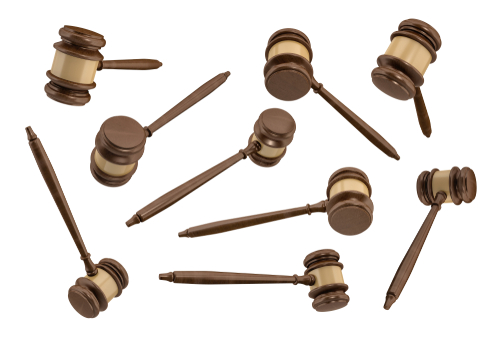10 Questions: From lesbian moms to Airbnb, Roberta Kaplan makes sure laws keep pace with change

Photograph by Len Irish
Roberta Kaplan could be described as a specialist in emerging law. She litigates cases that shape the legal structure within which Americans live, love, work and hail cabs. A Paul, Weiss, Rifkind, Wharton & Garrison partner in New York City, she successfully argued U.S. v. Windsor before the U.S. Supreme Court in 2013, winning a landmark verdict that struck down the Defense of Marriage Act. Her book about the case, Then Comes Marriage: United States v. Windsor and the Defeat of DOMA, was published last fall. Now she’s representing a married lesbian couple petitioning to overturn Mississippi’s ban on gay adoption. And she’s achieved significant legal victories on behalf of sharing-economy clients like the international lodging-arrangement company Airbnb and Hailo, which arranges private car and taxi transportation via smartphone.
Q. Your client list includes Columbia University and the Minnesota Vikings. You’ve done securities class actions and handled lender liability cases and Fair Labor Standards Act cases. How would you describe the type of law you practice?
A. I am a traditional commercial law litigator. Believe it or not, we still exist!
Q. Was it ever an issue with your firm that you’ve devoted so much time to pro bono?
A. Pro bono is part of our firm culture. We’ve always believed that every litigator should do pro bono; and when you do it, it’s part of your docket like any other case. There’s no difference between how we would litigate a case with Edie Windsor or JP Morgan. When Edie asked me if I could take her case, she asked me how much it was going to cost. I held up my hand and made a zero with my fingers. It didn’t even occur to me to ask the firm—it’s in our DNA.
Q. Did you have a feeling that the Windsor case would be the one to make it to the Supreme Court?
A. I certainly knew it was a possibility, but it wasn’t something I was banking on in the beginning. But this was a tax on being gay. Call me crazy, but I think our country was started based on the protest of an unfair tax, so I thought Americans would really get it.
Q. How did you get involved in the Windsor case?
A. It was just kismet—pure luck or whatever else you want to call it. Edie’s good friend, a Catholic gay rights activist, reached out to a friend of mine, who said he’d recommend her case to a bunch of different lawyers. I found out later that I was the only one that he called.
Q. Do you think that being a lesbian made you a better advocate for Edie Windsor?
A. Generally, no. But I would say that, as we were preparing for the Supreme Court argument, sometimes moot court panelists would ask really out-there questions that bordered on offensive. It was their job, but it was easier for me to answer those questions because I had been hearing them my whole life.
Q. Tell me about the book: How was the writing process?
A. It was incredibly hard, much harder than I had thought. What I do for a living is write, but what I didn’t anticipate was the difference between writing a brief and writing a narrative nonfiction book.
Q. In your book, you share personal stories—about coming out to your mother and when you and your wife experienced discrimination at the hospital following the birth of your son. Was this always part of the plan?
A. No. In the proposal, there was very little about that. But as I started to put it together with my editor, it really occurred to me that this isn’t a story about just winning at the Supreme Court; it’s about changing American minds. I realized I couldn’t tell that story without explaining how American minds had changed within the course of my lifetime.
Q. And now the law has to catch up—your specialty. Do you think that’s in a way similar to what’s happening with new business models behind the sharing economy?
A. It is. It’s a system where companies have a business model that was totally unanticipated at the time the regulations were put in place. The confluence between the disruptive industries and the regulations in the context of these industries is outdated. It provides fascinating legal issues; it’s grafting a new paradigm onto an old system.
Q. Have you thought about what’s next for you, professionally? Maybe a move to the bench?
A. I don’t know what lies in my future, but I walk into work every single day excited about what I do. My work is fascinating, and I have never been bored. I have experienced a lot of emotions at Paul Weiss, but boredom has never been one of them.
Q. Let’s talk about free time: What do you do for fun?
A. I spend as much time with my family as possible. I like to watch movies with my son. We have mastered the entire oeuvre of Miyazaki.
This article originally appeared in the January 2016 issue of the ABA Journal with this headline: “Laws of Evolution: From lesbian moms to Airbnb, Roberta Kaplan makes sure laws keep pace with change.”



